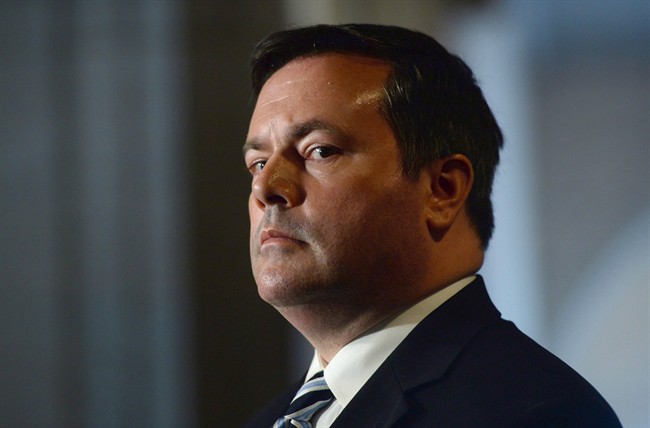WASHINGTON – As the new Liberal government launches a review of military policy, the last defence minister in the Conservative government has expressed qualified support for joining the U.S. missile shield.

The issue has remained politically dormant for a decade but is now resurfacing, with ballistic missile defence (BMD) part of the wide range of topics up for review by the new government.
READ MORE: Join ballistic missile defence, involve NATO in Arctic, experts tell Trudeau
Jason Kenney says it’s worth considering – should Canada be formally asked to participate. He says his former boss, then-prime minister Stephen Harper, never pushed the matter as there was no such request.
“My own view is that if we were to get a specific request for co-operation with the United States on BMD, we ought to look very favourably upon it,” said Kenney, echoing the call of some former Liberal defence ministers.
“Canada should be prepared to co-operate with the United States. Insofar as this relates to continental defence, this is, I think, an obligation for us. This is not about stationing offensive weapons on Canadian soil. It’s certainly not nuclear weapons.
“It’s about the opposite – it’s about stationing parts of a defensive system that really bring into the 21st century the Norad platform that was conceived of in the 1950s.”
A study by the Council on Foreign Relations says the U.S. has spent more than US$100 billion on the program since 2002, and plans to spend $8 billion more each year – about two per cent of the entire U.S. military budget.
The system involves launching equipment into space that would be able to shoot down incoming missiles – often described as hitting a bullet with another bullet. It repeatedly failed tests, but its proponents point to increasing successes.

Get breaking National news
Canada has apparently never been asked to store rockets with the so-called kill vehicle on its soil.
READ MORE: Sajjan vows no repeat of the mistakes of the Afghan war with new Iraq plan
The main Canadian contribution would likely include more modern radar than the nearly obsolete system currently in the Arctic – something Kenney said the previous government had already begun exploring.
Kenney said he sees the argument for missile defence.
WATCH: Canada’s Sajjan meets with NATO defence ministers in Brussels

Canada already participates in missile detection with the U.S. in Norad and should have some say in where an incoming missile gets shot down: “I find that a compelling argument to make.”
The last Liberal government rejected a request to fully participate in the system a decade ago, when Paul Martin was prime minister and George W. Bush was president.
There are plentiful signs of the military wanting to join.
Transition briefing documents prepared for Defence Minister Harjit Sajjan, for example, tout the importance of missile defence. The Canadian Press received the documents under the Access to Information Act.
References to specific countries are redacted. But the briefing material says: “The strategic importance of ballistic missile defence (BMD) has increased in recent years.”
The system would not be equipped to deter a sophisticated, sustained barrage from a powerful foe. Its ambitions are far more limited than the so-called Star Wars program, proposed near the end of the Cold War.
READ MORE: Liberals attack Kenney after ‘English-to-English’ translation heckle at Sajjan
It’s being presented as a means of deflecting an accidental strike or limited attack by a rogue state – North Korea is frequently cited as a main example.
On Tuesday, the deputy commander of the North American Aerospace Defence Command, told a parliamentary committee that joining the program would simplify Norad’s command structure.
Lt.-Gen. Pierre St-Amand described how Canadians in the command centre would – under the status quo – be automatically excluded from any American decision to shoot down an incoming nuclear-armed intercontinental missile.
“We’re talking about a space of minutes,” the general told a House of Commons committee. “Minutes only, when we need to make decisions in order to defend or to assess an attack. So it’s complicated.”
He said it wouldn’t be up to him to decide whether Canada joined the program – that would fall to the government and his boss, chief of defence staff Gen. Jonathan Vance.
Two former Liberal defence ministers have also said Canada should reconsider its position. One of those ex-ministers, Bill Graham, is part of an advisory group to the current government’s defence policy review.
With files from Mike Blanchfield in Ottawa







Comments